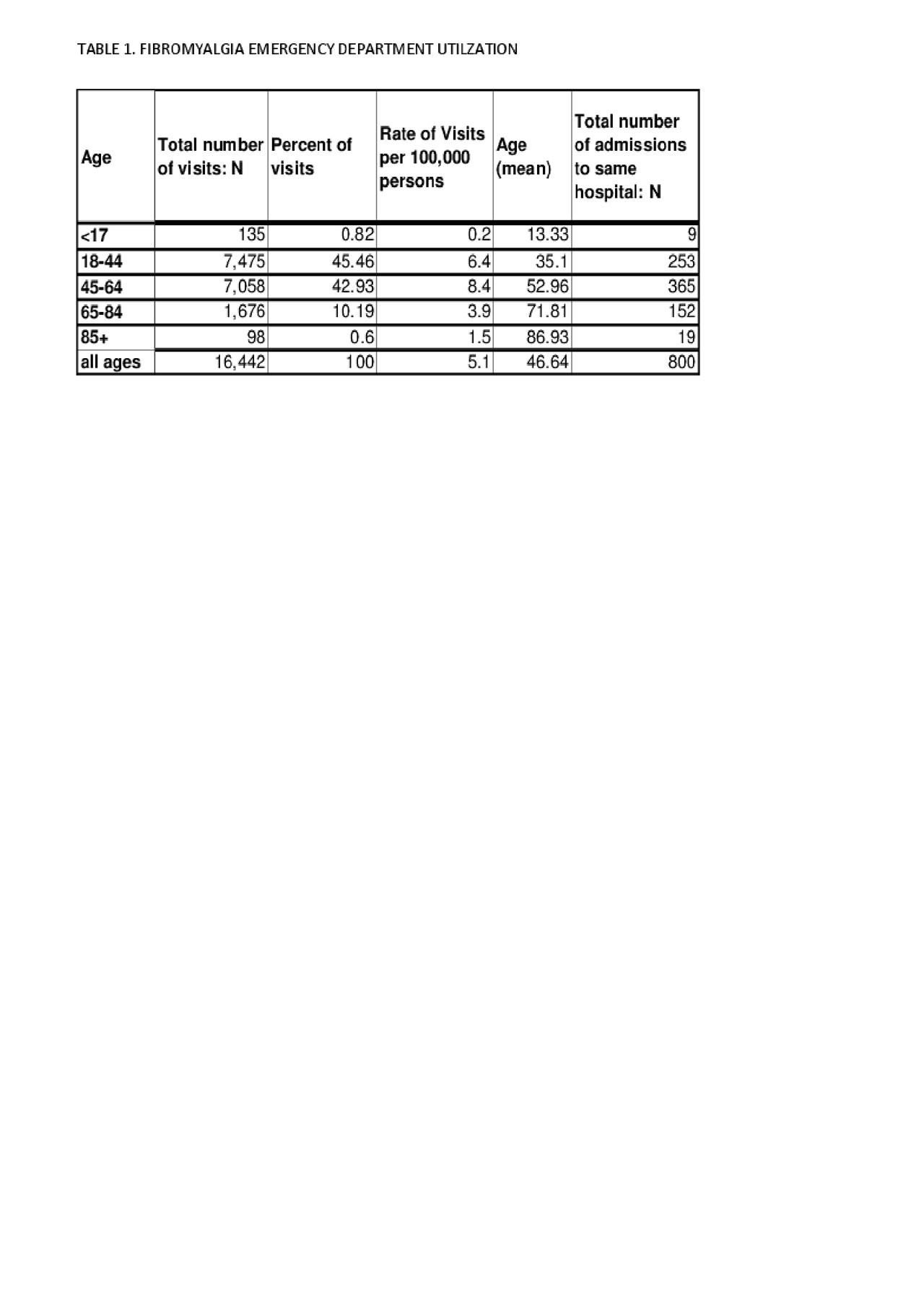Session Information
Session Type: Poster Session (Sunday)
Session Time: 9:00AM-11:00AM
Background/Purpose: Fibromyalgia (FMS) is a common pain syndrome affecting millions of people in the USA. It is normally managed in the outpatient setting by rheumatologists, pain physicians, and primary care physicians but some FMS patients seek care in emergency departments (ED). In this abstract, we describe ED visit utilization for patients with FMS based on billing codes.
Methods: Data were abstracted from the National Inpatient Sample Databases. This database is the largest longitudinal collection of inpatient admission and emergency department data in the USA. It is a nationally representative sample from approximately 1000 hospitals. The numbers in the databases are weighted to optimize both national estimates and longitudinal analysis. The databases were searched for ED visits in 2016 with a listed ICD-10 code for fibromyalgia M79.7 as the principal diagnosis. Total number of FMS ED visits, gender, age, number of hospital admissions, and inpatient charges were recorded.
Results: 16,442 ED visits had an ICD-10 FMS code listed as the principal diagnosis in 2016. This is estimated to be 5.1 ED FMS visits per 100,000 persons. The age breakdown was as follows: < 17 =135 (0.82%), 18-44 =7,474 (45.46%), 45-64 = 7,058 (42.93%), and 65-84 =1,676 (10.19%), and ≥85= 98 (0.6%); see table 1. Gender breakdown of ED FMS visits were as follows 15,417 (93.8%) females and 1,020 (6.2%) males; see table 2. Only a small number of ED visits 800/16,442 (4.9%) resulted in an inpatient admission to the same hospital. A similar percentage of females 4.8% and males were admitted 5.8%. The charges for hospital admission were on average $29,431 and had a median of $25,806. This type of analysis is severely limited by the ED’s ability to diagnose FMS and the quality of subsequent coding. These numbers may underestimate ED utilization by FMS patients.
Conclusion: This data gives us valuable information on FMS care in the USA. 16,442 visits to EDs were coded with a principal diagnosis of FMS during the year 2016. Females between the ages 18-64 were the most common to seek ED care for FMS. Patients < 18 years, > 84 years and males were the least likely to visit an ED for FMS. Fortunately only a small fraction of these ED visits led to an inpatient admission to the same hospital. Even though the overall number of ED FMS visits was small, there seems to be an opportunity to improve coordination of outpatient care to avoid unnecessary ED visits.
To cite this abstract in AMA style:
Kambhatla S, Gauto-Mariotti E, MANADAN A. Emergency Department Utilization for Fibromyalgia Patients [abstract]. Arthritis Rheumatol. 2019; 71 (suppl 10). https://acrabstracts.org/abstract/emergency-department-utilization-for-fibromyalgia-patients/. Accessed .« Back to 2019 ACR/ARP Annual Meeting
ACR Meeting Abstracts - https://acrabstracts.org/abstract/emergency-department-utilization-for-fibromyalgia-patients/


